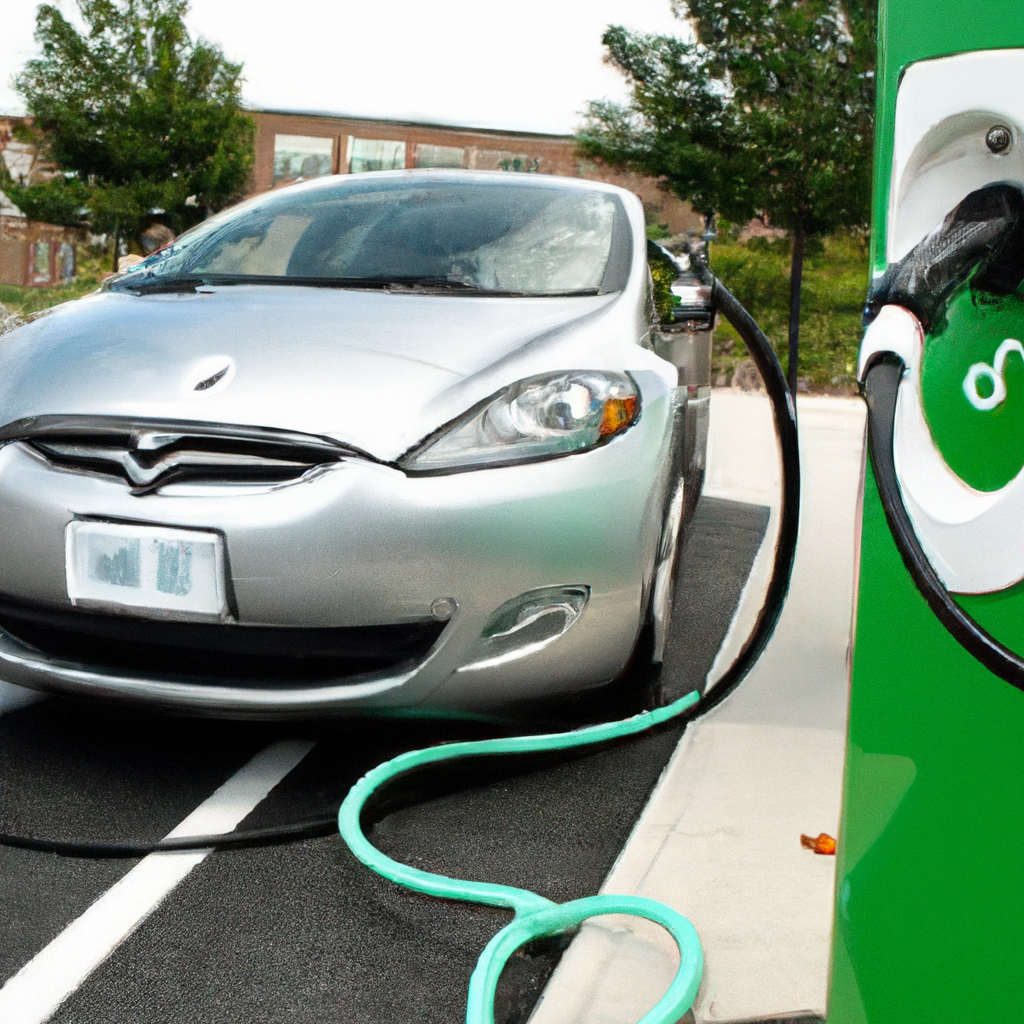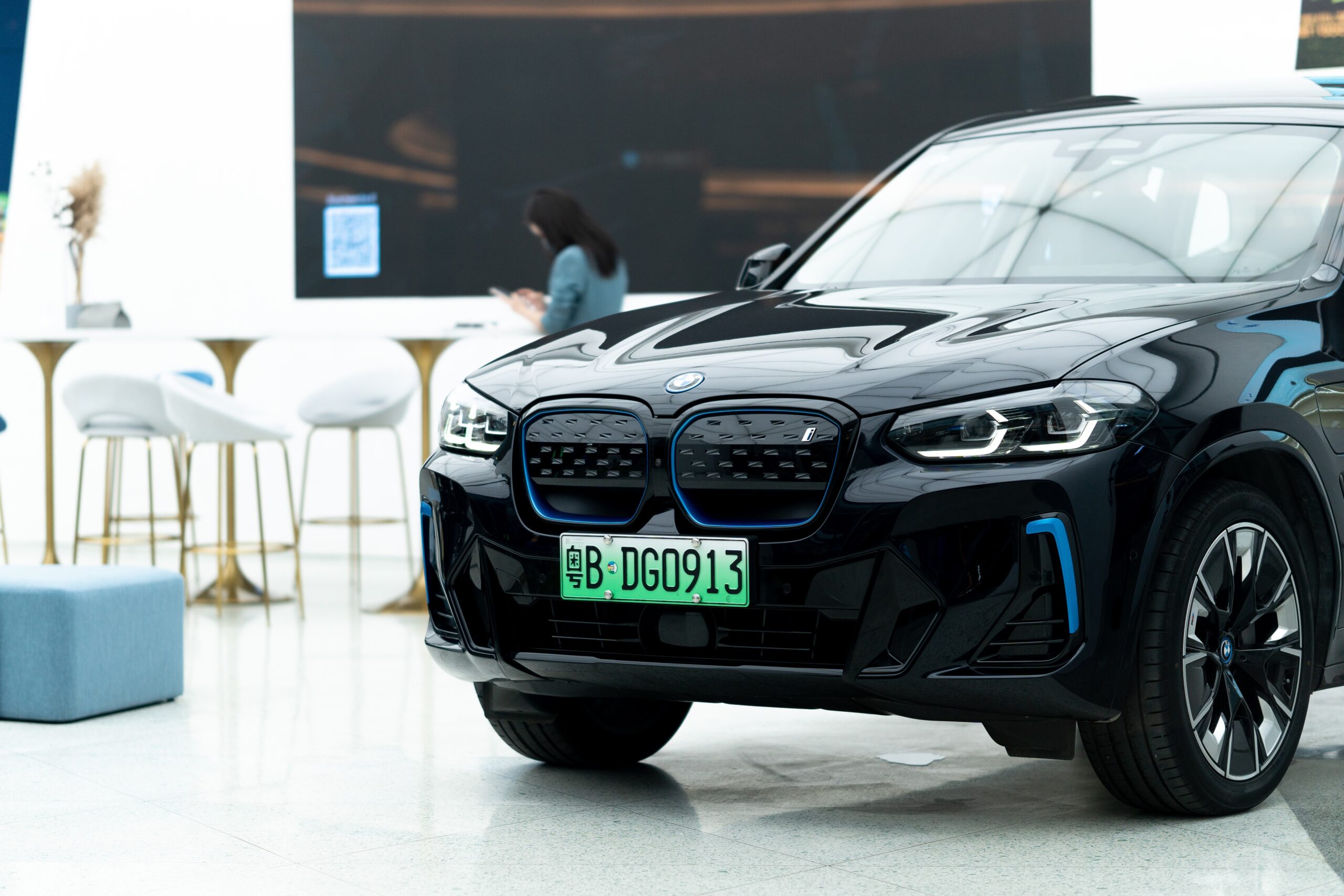EV Charger Compatibility: Ensuring The Right Fit For Your Vehicle
September 25, 2023 | by Jacob Kang
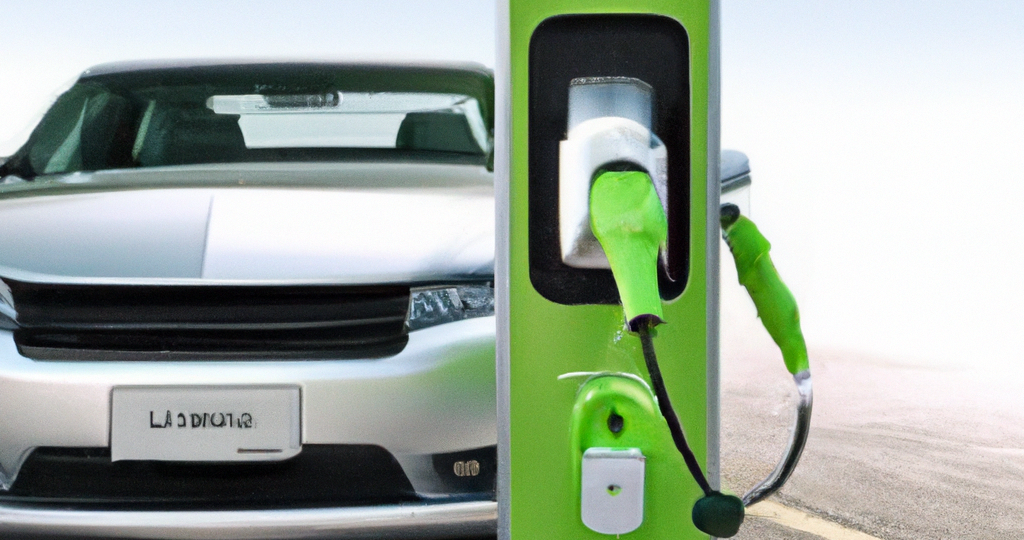
Imagine never having to worry about running out of gas or emitting harmful pollutants into the air. That’s the beauty of owning an electric vehicle (EV). But in order to fully enjoy the benefits of an EV, you need to ensure that you have the right charger for your vehicle. EV charger compatibility is a crucial aspect that should not be overlooked. In this article, we will explore the importance of selecting the right charger for your vehicle and provide valuable insights into the different types of chargers available in the market. So, get ready to dive into the world of EV chargers and discover how to ensure the perfect fit for your vehicle.
Understanding EV Chargers
Electric vehicles (EVs) are becoming increasingly popular as a sustainable transportation option. However, to keep your EV charged and ready for the road, it is essential to understand the different types of EV chargers available. This article will guide you through the various aspects of EV chargers, including the types, charging levels, power output, and connector types.
Types of EV Chargers
EV chargers come in different forms, each offering various features and benefits. The most common types include Level 1 chargers, Level 2 chargers, and DC fast chargers. Level 1 chargers typically use a standard household outlet and provide a charging rate of about 3 to 5 miles of range per hour. Level 2 chargers require a dedicated circuit and offer a faster charging speed of up to 25 miles per hour. DC fast chargers are the quickest option, providing a significant boost of range in a short amount of time.
Charging Levels
Charging levels refer to the rate at which an EV charger replenishes the vehicle’s battery. Level 1 and Level 2 chargers are commonly found in residential settings, while DC fast chargers are typically found in public charging stations. Each level offers different charging speeds, allowing you to choose the most convenient option based on your needs.
Power Output
EV chargers have different power outputs, measured in kilowatts (kW). The power output determines how quickly your EV charges. Level 1 chargers usually have a power output of 1.4 to 1.9 kW, while Level 2 chargers range from 3.3 to 19.2 kW. DC fast chargers have a much higher power output, ranging from 50 kW to 350 kW. It’s essential to consider the power output of a charger to ensure compatibility with your vehicle’s charging capabilities.
Connector Types
The connector type is another crucial aspect of EV charger compatibility. The two most common connector types are the SAE J1772 connector and the CCS (Combined Charging System) connector. The SAE J1772 connector is widely used for Level 1 and Level 2 chargers, while the CCS connector incorporates both AC and DC charging capabilities. Other connector types, such as CHAdeMO, Tesla Supercharger, and Type 2, are also available, but their compatibility depends on the vehicle make and model.
Importance of Charger Compatibility
Ensuring charger compatibility with your EV is important for several reasons.
Efficient Charging
Compatible chargers allow for efficient charging, maximizing the speed at which your EV can recharge. Using a charger that matches your vehicle’s specifications will provide optimal charging performance and help you maintain a reliable range.
Preventing Damage to the Vehicle or Charger
Using an incompatible charger can cause harm to both your EV and the charger itself. Chargers that deliver a higher power output than your vehicle can handle may damage the battery or electrical components. On the other hand, using a low-power charger could result in excessively long charging times, inconveniencing you and potentially causing wear on the charger.
Safety Concerns
Compatibility between your EV and the charger ensures safety during the charging process. Using the correct charger reduces the risk of overheating, electrical faults, and other potential safety hazards. It is crucial to prioritize safety by choosing a charger that is compatible with your specific vehicle.
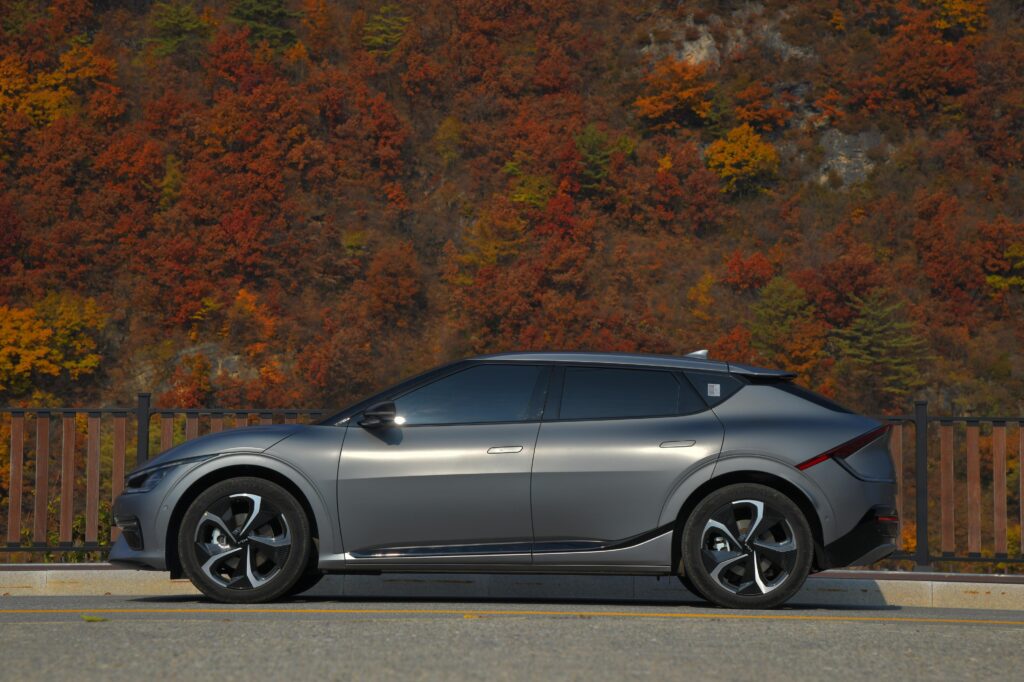
This image is property of images.unsplash.com.
Factors to Consider for Charger Compatibility
To determine charger compatibility for your EV, you should consider several factors.
Vehicle Specifications
The manufacturer’s specifications for your EV will provide valuable information about the charging capabilities and requirements of your vehicle. Pay attention to the recommended charging voltages and currents provided by the manufacturer to ensure compatibility with the charger you select.
Charging Speed
Evaluate your charging requirements based on your driving habits and lifestyle. If you travel long distances regularly, a faster charging speed may be essential. However, if you have access to overnight charging or shorter daily commutes, a slower charging speed may be sufficient.
Connector Compatibility
Verify the connector type required for your EV. The connector must match the one provided by the charger to establish a connection and initiate the charging process. Ensure that your EV and charger have compatible connectors to achieve a successful charging experience.
Understanding Your Vehicle’s Charger Requirements
Understanding your vehicle’s charger requirements is vital in ensuring compatibility with the right EV charger.
Manufacturer’s Recommendations
Consult your vehicle’s owner’s manual or the manufacturer’s website for recommended charger specifications. The manufacturer will provide specific guidance on the charging voltage, current, and connector type that are compatible with your EV.
Battery Capacity
Consider your EV’s battery capacity when selecting a charger. A higher-capacity battery may require a charger with a higher power output to achieve faster charging times. It is crucial to match the charger’s power output to your EV’s battery capacity for optimal charging performance.
Charging Speed
Take into account the desired charging speed based on your daily driving needs. If you primarily use your EV for short commutes, a slower charger may be sufficient. However, if you frequently embark on long trips, you may need a faster charger to minimize charging downtime.
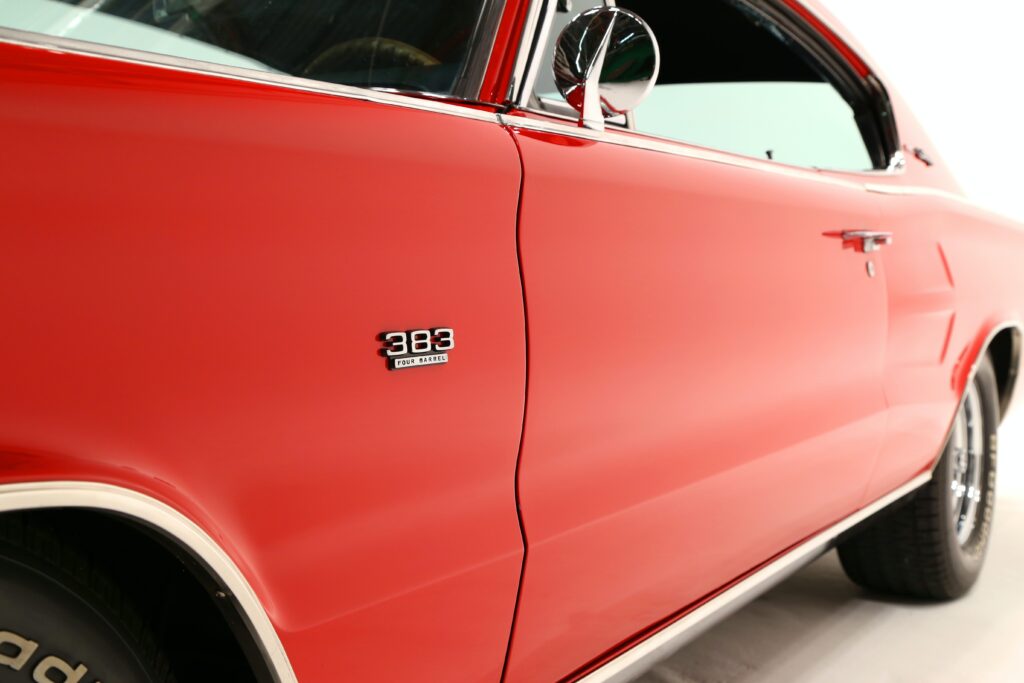
This image is property of images.unsplash.com.
Researching Available EV Chargers
Once you have a clear understanding of your vehicle’s charger requirements, it’s time to research the available options.
Consulting Manufacturer’s Website
The manufacturer’s website is an excellent resource for finding recommended chargers for your specific vehicle make and model. They often provide a list of approved chargers that meet their compatibility standards, easing your search for the right EV charger.
Online Retailers
Online retailers specializing in EV charging equipment offer a wide range of chargers. You can browse their selections, read customer reviews, and compare features to find a charger that meets your needs. Look for reputable sellers that offer warranties and ensure the chargers they sell are certified for safety.
Public Charging Networks
Public charging networks, such as those operated by electric utility companies or charging station providers, can also be reliable sources of information. They often provide information on their website about compatible chargers, charging rates, and locations of their charging stations.
Comparing Charger Features and Specifications
When comparing different EV chargers, pay attention to their features and specifications to find the most suitable one for your vehicle.
Power Output
Compare the power outputs of different chargers to ensure compatibility with your vehicle’s charging capabilities. Consider your EV’s maximum charging capacity and select a charger that can deliver the required power output for efficient and timely charging.
Connector Types
Verify that the charger’s connector type matches your vehicle’s requirements. Each EV model may have specific connector types, such as the SAE J1772 or CCS connector, so ensure compatibility before making a purchase.
Smart Charging Features
Some EV chargers offer additional features, such as smart charging capabilities. These features allow you to schedule charging times, monitor charging progress remotely, and optimize charging based on cost and renewable energy availability. Consider these features if you value convenience and eco-friendly charging options.
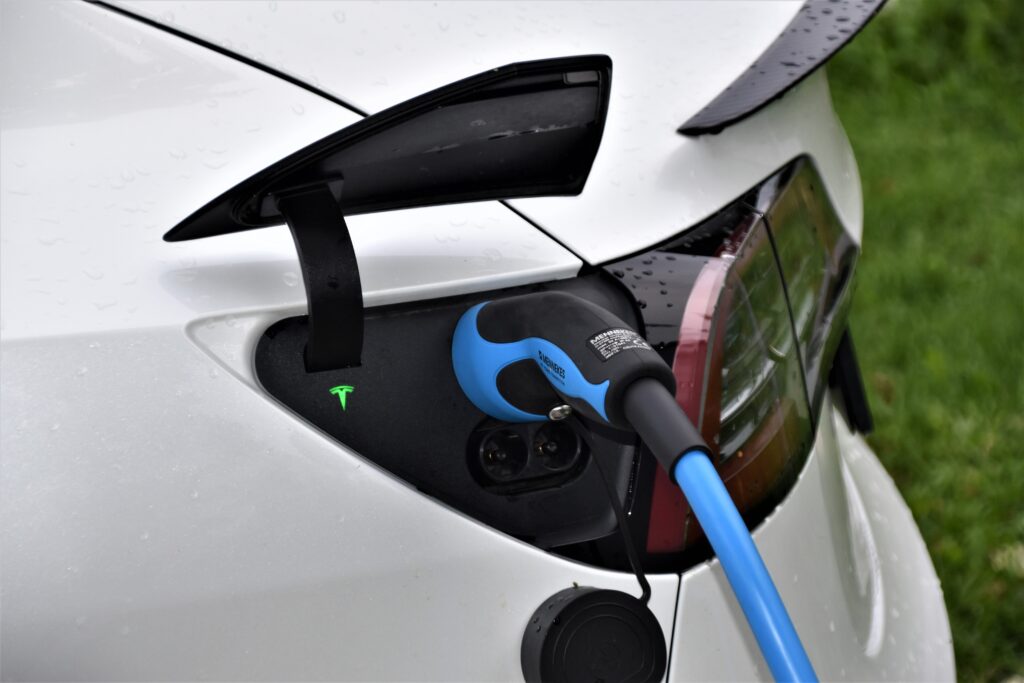
This image is property of images.unsplash.com.
Choosing the Right EV Charger for Your Vehicle
Once you have compared the available options, it’s time to choose the right EV charger for your specific vehicle.
Matching Connector Types
Ensure that the EV charger you select has a compatible connector type with your vehicle. Without a proper connector match, the charger will not be able to establish a physical connection with your EV, rendering it ineffective for charging.
Considering Maximum Power Output
Consider your EV’s maximum charging capacity and select a charger that can deliver a power output within that range. Choosing a charger with a higher power output may be wasteful and unnecessary, while selecting one with insufficient power output will result in slower charging times.
Evaluating Charging Speed
Take into account your daily driving needs and the desired charging speed. If timely charging is a priority, choose a charger that offers a faster charging rate. However, if you have access to overnight charging or shorter daily commutes, a slower charger may be suitable.
Reviewing Additional Features
Consider any additional features that may enhance your charging experience. Smart charging capabilities, connectivity options, and user-friendly interfaces can significantly improve your overall electric vehicle ownership experience. Select a charger that aligns with your preferences and needs.
Installation Considerations
Once you have chosen the right EV charger, you need to consider the installation process.
Home Charging Stations
If you plan to charge your EV primarily at home, investing in a home charging station is highly recommended. home charging stations provide convenience and allow for faster charging compared to standard outlets. Ensure that your chosen charger is compatible with the available electrical infrastructure in your home and follow the installation guidelines provided by the manufacturer.
Professional Installation
For complex installations or if you have limited electrical knowledge, it is advisable to seek professional installation services. Licensed electricians can ensure the charger is wired correctly, and appropriate safety measures are taken during the installation process. Professional installation guarantees your safety and the optimal performance of your EV charger.
Electrical Safety
When installing an EV charger, prioritize electrical safety. Ensure that your charger is installed in compliance with local electrical codes and regulations. It is crucial to follow the manufacturer’s instructions and, if necessary, consult with a qualified electrician to ensure a safe and reliable charging installation.

Potential Compatibility Issues
While most modern EVs and chargers are designed for compatibility, there are a few potential issues to consider.
Older Vehicle Models
Older EV models may have different charging standards or connector types that limit their compatibility with newer chargers. It is essential to research and understand the charging requirements of your specific vehicle model if you own an older EV.
Non-Standard Connectors
Some EV models may have non-standard connectors, which can create compatibility challenges. If your EV has a non-standard connector, you may need to seek specialized chargers or adapters designed to accommodate your vehicle’s unique charging needs.
Different Charging Standards
Different regions and countries may adopt different charging standards, such as CCS or CHAdeMO. If you plan to travel internationally with your EV, consider the charging standards used in the countries you will visit to ensure compatibility with local charging infrastructure.
Professional Assistance for Compatibility Assessment
If you encounter any compatibility concerns or have specific questions about charger compatibility, several resources can provide professional assistance.
Consulting with Electricians
Licensed electricians with experience in EV charger installations can help assess charger compatibility with your specific vehicle. They can evaluate your electrical infrastructure and provide expert advice on choosing the right charger that meets your EV’s requirements.
Contacting Vehicle Manufacturers
If you have questions or concerns about charger compatibility, reach out to your vehicle manufacturer’s customer support or consult their website. They can provide valuable information on recommended chargers and additional compatibility resources.
Seeking Help from Charging Networks
Charging networks and public charging station providers often have informative customer support services. They can assist you in finding compatible chargers, understanding charging standards, and resolving any compatibility issues you may encounter.
In conclusion, EV charger compatibility is crucial for efficient and safe charging of your electric vehicle. By understanding the different charger types, considering your vehicle’s specifications, researching available options, and consulting professionals when needed, you can ensure the right fit for your EV and enjoy hassle-free charging experiences. Choose your EV charger wisely, and enjoy the convenience and environmental benefits of electric transportation.
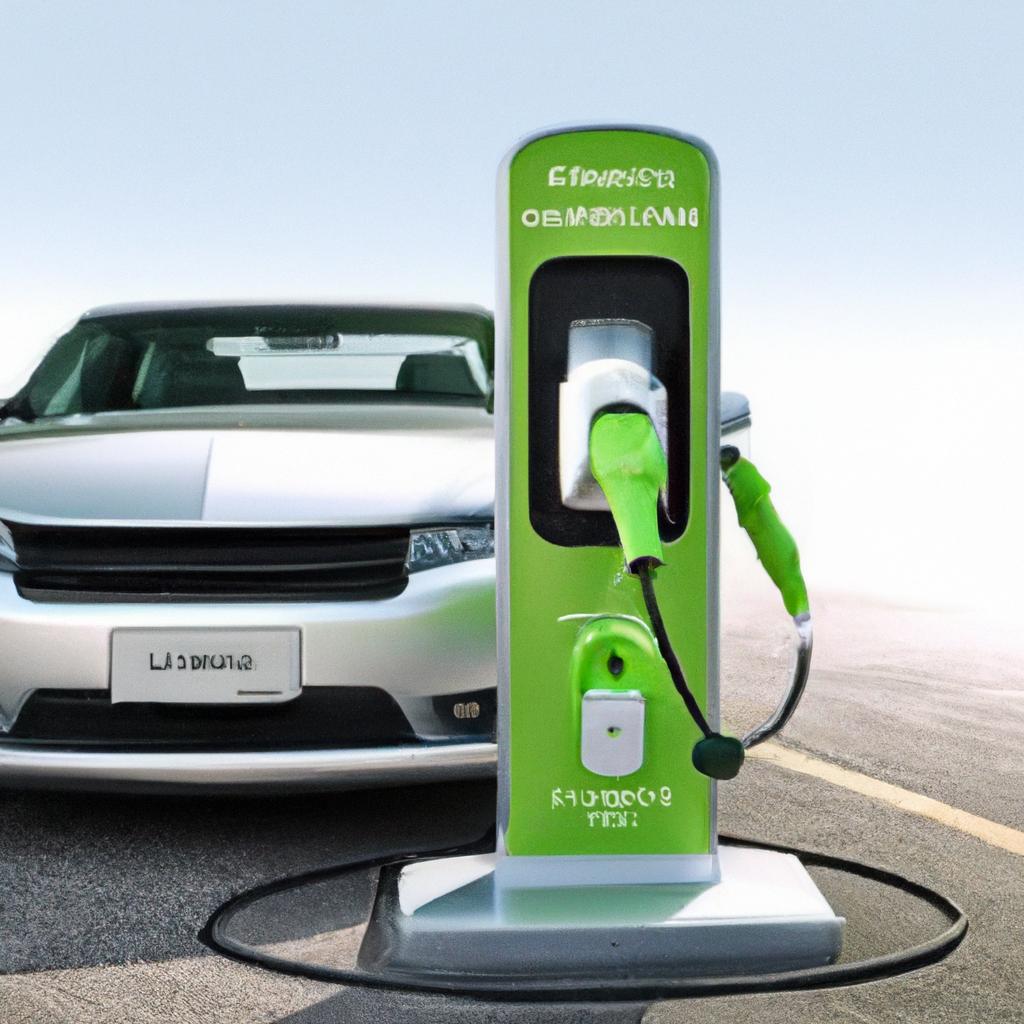
RELATED POSTS
View all
